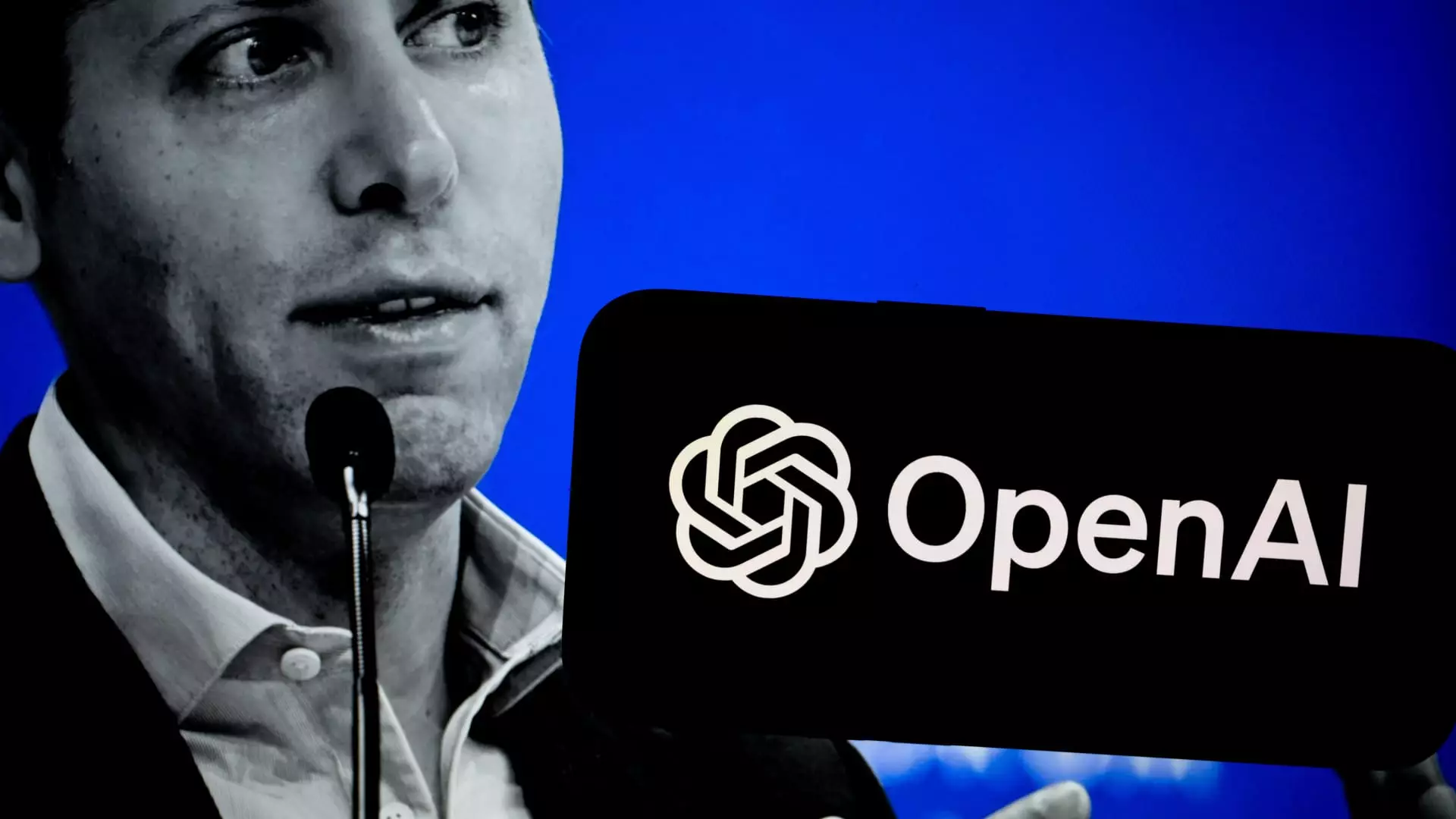The recent all-hands meeting at OpenAI, led by CEO Sam Altman, has unveiled significant turbulence within the organization, marked by executive departures and questions about equity compensation. During this meeting, Altman firmly rejected claims of a “giant equity stake,” stating emphatically that such information was “just not true.” This assertion, made in a video conference according to sources within the meeting, highlights a critical juncture for the company, navigating both internal and external pressures. The absence of equity for Altman, despite being a co-founder, has raised eyebrows among investors, leading to speculation regarding his future role and the company’s trajectory.
Altman’s denial of any immediate plans for equity compensation came during a sensitive period for the firm, which has faced criticism regarding its rapid expansion and executive cohesion. Sarah Friar, the finance chief, echoed his sentiments, emphasizing the concerns raised by investors about the lack of equity ownership as OpenAI’s valuation soars. With a financial backing that recently positioned the company at more than $150 billion, the stakes are disproportionately high.
Equity Discussions and the Board’s Role
OpenAI Chairman Bret Taylor further epitomized the uncertainty during a conversation with CNBC, indicating that while discussions regarding equity compensation for Altman have taken place, no concrete proposals have emerged. This vagueness about equity—and its implications—contrasts sharply with the burgeoning investor interest in the company. The board’s deliberation over whether granting equity to Altman aligns with OpenAI’s mission reveals the friction between maintaining a non-profit ethos and the pressures of corporate profitability.
The juxtaposition of their non-profit origins against a potential for-profit restructuring adds layers of complexity to these discussions. Such restructuring could enable the separation of non-profit initiatives from profit-driven ventures, possibly allowing for a more flexible operational portfolio, yet it raises questions about the company’s foundational values and long-term goals.
Executive Exodus: Impacts on the Culture
A wave of executive departures further complicates this already volatile environment. Just days before Altman’s meeting, three high-profile executives, including former Chief Technology Officer Mira Murati, announced their exits. Murati’s comments about creating “time and space to do my own exploration” underscore a broader sentiment of personal evolution and transition that may resonate within the company culture. However, the frequency and timing of these departures significantly undermine stability and continuity, leading to speculation about internal discord.
Their exit is not isolated; the company has seen a stream of significant resignations in recent months, including co-founder Ilya Sutskever and research leader Jan Leike, signaling deeper issues that may not solely arise from a restructuring strategy but rather from pressures inherent in a rapidly changing industry landscape. Such leadership transitions could alter OpenAI’s strategic direction and innovation capabilities, setting the stage for potential vulnerabilities going forward.
OpenAI’s rapid growth since the release of ChatGPT has positioned it in the limelight, but with that growth comes significant risk. Ongoing controversies related to the safety and ethical implications of AI technologies have caused unease among employees, prompting fears that the organization is outpacing its ability to ensure safe and responsible AI deployment. Altman’s history of being ousted only to be reinstated in late 2023 speaks to a turbulent power dynamics within OpenAI that echoes the challenges he faces in securing institutional trust and fostering a unified corporate mission.
As the company navigates this turbulent period, it faces increasing scrutiny from the public and stakeholders alike. The need for a cohesive leadership team and clarity of mission could never be more apparent or pressing. During Italian Tech Week, Altman sought to allay fears, suggesting that the departures could catalyze positive transitions, a sentiment that might be met with skepticism given the pattern of leadership volatility.
The situation at OpenAI stands as a testament to the challenges of leading a high-growth technology firm at the frontier of AI innovation. As the company looks to secure substantial funding—with Thrive Capital reportedly seeking to pitch in $1 billion along with other investment firms—the foundational policies and leadership structures will need to adapt. Investors will be looking closely at how OpenAI navigates this pivotal period, evaluating whether it can maintain its core mission while capitalizing on corporate opportunities.
OpenAI’s trajectory is fraught with uncertainty, yet rife with potential for renewal and resilience. The combination of high-profile leadership changes, ongoing equity discussions, and growing investor interest sets the stage for critical developments in the company’s future, challenging its ability to affirm its foundational vision in an increasingly corporate landscape.


Leave a Reply